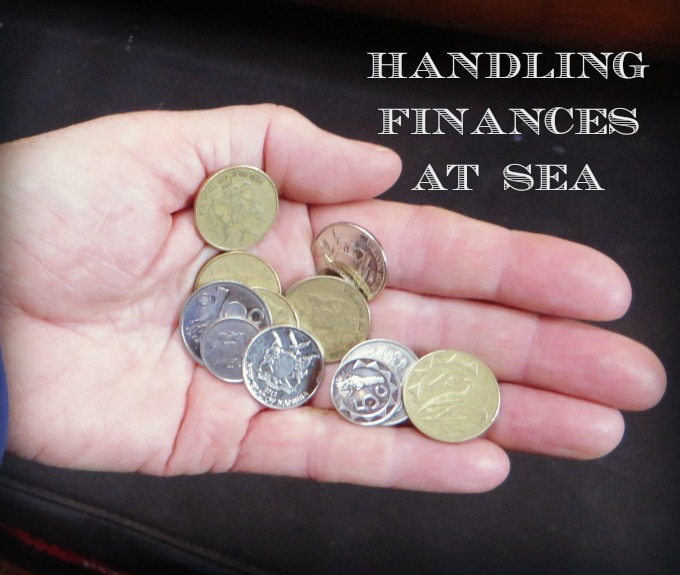Handling Finances at Sea
/ Before leaving on a long passage, there's always so much to think about and handling our finances is one of them. There are all those purchases we charged just before leaving and the recurring payments made on our charge cards to consider. How do we manage bill-paying when we're on a passage? It's a question we're asked frequently. We've dealt with it in varied ways over the past years. Here are some thoughts and considerations.
Before leaving on a long passage, there's always so much to think about and handling our finances is one of them. There are all those purchases we charged just before leaving and the recurring payments made on our charge cards to consider. How do we manage bill-paying when we're on a passage? It's a question we're asked frequently. We've dealt with it in varied ways over the past years. Here are some thoughts and considerations.
Limit the number of credit cards
We have only two credit cards … a Master Card and a Visa, neither of which charge currency conversion fees which is important if you plan to be out-of-country for any length of time. Both cards also give a % cash back on purchases made. We tend to use one card more than another just for convenience sake. It's easier to keep track of purchases on two cards than on several. We either use one of these cards or pay cash for all of our purchases.
Set up an Auto Pay with credit card companies
Many credit card companies offer a “service” of dipping into your checking account each month to pay themselves. It's an option, but one we don't particularly like. If you can't check your account while at sea, you don't know what they're deducting. I'd prefer to do a bit more planning and have control of what's paid.
Get someone else to pay bills
In the past, my sister, Lin, had the onerous task of paying our bills … by writing checks, no less. It's an option, but you need to be able to trust the person who has access to your checking account and you also need to realize it's a pain in the tush for them to pay your bills as well as their own. Despite the fact we now pay all our bills ourselves, Lin still has access to our checking account … just in case.
Electronic Bill Pay
Our best tool for paying bills while on a passage is the electronic bill pay option through our bank. It's a free service for us and it's worked like a charm over the past few years. We've set up “pay-to” accounts and just fill in an amount and date to be paid and voila, it's handled.
Keep track of recurring charges
In addition to local current purchases, it's important to keep track of any recurring charges or auto-renewals you have set up. We don't have many … our annual SSCA dues, SailBlogs renewal, quarterly website fees, etc. We have a list and I take these into account if I'm scheduling payments in advance.
Calculating the amount to be paid can be challenge.
When I know we'll be offshore or out of internet range for several weeks, I keep accurate track of what we spend just before we leave. I cross-check what's been processed on our credit card account against the receipts; sometimes there's quite a time lag between purchase and account posting. I check for any recurring or annual renewal fees and add them into my calculations. As close to departure as possible, I schedule a credit card payment and add a little extra for anything I might have missed. Keep in mind the cut-off date for both charges and payments. It might be that you can split the payments between two months if the charges occur on different “sides” of the cut-off dates.
What about bills that cannot be charged?
We, currently, do not have any bills that cannot be charged to our credit cards, but we do send out checks for events like birthdays and holiday gifts and they can be scheduled well in advance.
What about deposits?
If you're lucky enough to have money coming in instead of just going out, then setting up an auto-deposit for regular incoming funds is the best bet. Still, there are those odd checks that might arrive and need depositing. Again, relying on someone ashore is the only sure-fire way to insure that funds will be deposited in a timely manner.
You'll be surprised how much you save by being at sea. Our best month ever for expenditures … $0. Long passages really give you a chance to recuperate from all that shore spending and build up your cruising kitty again.

